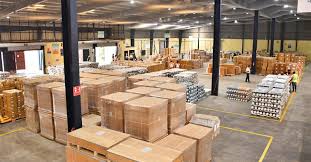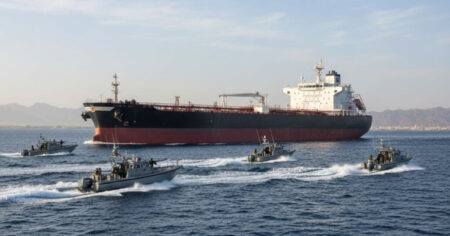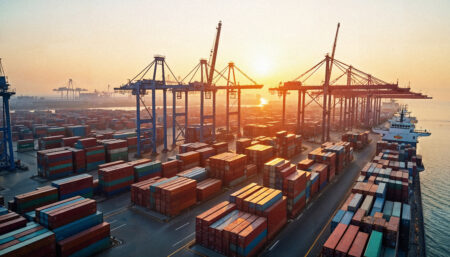The Bobba Group, founded in May 1992, has served the aviation verticals; they have handled cargo and ground handling services in Bangalore and Hyderabad airports, and have a 20-year association with Lufthansa. As a result, the previous 30 years in the aviation industry have seen tremendous growth for them.
“From where we started in 1992 to where we are now has been a long journey. Every entrepreneur must have a vision, and our father had one,” says Bobba Group and Bobba Logistics Director, Chandrakala Bobba. They started working for Lufthansa as a GSA and were among the first to transport Lufthansa cargo to the south and east. They worked in airport terminals and private businesses, and they experienced ups and downs like any other business. They’ve been fortunate in their current circumstances, so overall growth has been positive. They’ve devised novel solutions; microfulfillment is one of their most significant challenges and accomplishments, and they want to win people’s trust and spread the same idea throughout India.
To address the supply chain demands in and around the city, they have developed their own brand of warehousing and microfulfillment solutions called Bobba Logistics. It could be said to work in tandem with air freight because they collect a large amount of it for import-export, supply chain, storage, and inventory management.
They offer complete 3PL warehouse solutions. They handle all aspects of 3PL, such as first mile delivery, last mile delivery, first mile pick up, end-to-end data logging, inventory, and storage. They want customers to delegate all logistics aspects of their business to them so that customers can focus on what they do best: promote their own products. “We want to be the one-stop shop for any customer who fits into our vision,” says Balajee Bobba, Director, Bobba Group and Bobba Logistics.
Vision
Their vision is to take Bobba Logistics pan-India, beginning with the key southern markets, and going forward, ensuring the best in industry service across the network. They started in the south but would like to travel east and then north. Hence, they will eventually go pan-India.
“The goal of Bobba Logistics is to have the same level of quality and service across the country,” says Balajee. The aim, however, is to establish the standard first and then replicate it across the country. The name Bobba resonates with service excellence and industry-leading quality in all aspects.
Unique Selling Point

“Whether in Delhi or Mumbai, our projects are unique in that they have our personal touch,” says Chandrakala Bobba. The unique selling point of this project is that it is micro; it is the first of its kind, and the microfulfillment centre concept is now popular all over the world. Right now, their USP with the clients they are targeting is the proximity of the location and service.
She adds, “Our father’s legacy has already established the industry standard and benchmark. All we have to do now is build on it and carry it upward and onward.”
They, as owners, collaborate with the managers to tailor solutions for the clients. As a result, the level of trust in the concept is much higher because the founders are personally involved and available to customers.
“We believe strongly in transparency,” says Balajee, “so whatever the facility is currently configured or set up for will be completely as is.” The customer will be well aware of their optimum services, as they will not play the game of hiding charges or adding something later; everything will be disclosed to the customer up front. Once they are onboard, the client will have complete data logs from the time their cargo enters the premises to the time it is sent out. “Hence, there will be complete end-to-end responsibility from our side to ensure whatever they have is safe and secure, and above all, they will be able to get the current state of shipments in real time.”
Bobba Logistics is the brand that Bobba has launched. Since transportation costs are the single largest operating expense. Through Green Energy, to seamlessly integrate renewable sources of energy into their own systems, therefore minimising their carbon footprint. They are happy to give one rate, but the fuel cost will always account for 40 per cent of that cost. Now, how can they be a little more comparative on that? By looking to the future, they believe that having a fleet and agents who share similar views can help them achieve their goal, which automatically brings down the cost for them. The second-most important point would be the safety and security of customers goods and cargo, where the latest in technology is combined with state-of-the-art surveillance, security, and trained manpower.
Cold chain and the challenges
“We have a cold chain facility and provide a complete solution,” says Chandra. They have a dry warehouse with racking and non-racking shelves. They have a complete segment with a cold chain that handles close to 500 pallets, a chiller, a pre-cooler, a freezer, and a staging area. There is exclusivity; it is not as large as others, but it is a cold chain that caters to quick turnaround times. The cold zone is never stacked for an extended period of time; goods come in and out at a very high frequency, and they handle end-to-end of that process. In addition to storing and transporting, they also offer all value-added services, including reverse logistics, inventory management, sorting, labelling, relabeling, reverse packaging, data logging, and documentation. Each industry requires a different set of value-added services.
Food and vegetables are pre-frozen and cooled to a specific temperature before being cooled to another temperature and then sent for export. All these differences depend on the clients’ requirements. For example, the pharmaceutical industry would want its own set of value-added services. Because they offer end-to-end service, their system is fully operational and set up, and they are actively pursuing potential customers, so the cold chain is primarily focused on that.
Bobba Logistics is fully set up and operational, and they’re in talks with a lot of people about closing down on potential clients. They provide end-to-end services, and it is all housed in the same Bobba Logistics warehouse, making it a one-stop solution for all 3PL needs.
The difficulties they face are the various permutations and combinations that people come up with. As industries vary, temperatures vary, so everything depends on the most efficient solution they come up with, one that is workable for both the client, the potential customer, as well as Bobba Logistics, because they believe in a long-term, strategic partnership.
CSR activities
The Bobba Group supports numerous hospitals, adopts villages, and provides services to the locals, including free testing. Also, they support education in public schools. They primarily provide for healthcare, medical care, and education for seniors and others from disadvantaged backgrounds. For the aforementioned, they have partnered with 12 NGOs, including the Spastics Society of Karnataka, Samarthanam Trust for the Disabled, Akshara Foundation, Bangalore, SOS Children’s Village, and others.
National Logistics Policy
As per Chandrakala, “The policy is appropriate now that it has gained attention and is being discussed. Not just our industry, but all businesses will benefit if the government plays a good role in streamlining costs, initiatives, and the people who handle warehouse logistics in order to reduce time and speed up the entire process.
The policy is appropriate now that it has gained attention and is being discussed. Not just our industry, but all businesses will benefit
“It is a good start, and I believe there are many stakeholders in this,” says Balajee, adding that logistics costs in India are among the highest in the world. So, there is a lot of streamlining in the policy, and there has been a lot of feedback from stakeholders like warehouse operators and transportation providers. To consolidate all of this and try to reduce logistics costs, they are involved in dialogue at the state and national levels to provide feedback and obtain the most experienced cargo operators, as well as on the business side to give us an idea of what to look at in terms of national policy.
One thing that the government has encouraged is that they, as a stakeholder, try to educate even the most basic shopkeepers on how they can send their produce to other parts of the country using facilities and entire warehouse solutions, which can help small and medium businesses. And, obviously, having a uniform decision-making process at the national level, I believe it will only improve in the next five to ten years when they can reach the levels of other countries, like South Korea and Singapore.
As Bobba I would like to say, “Be kind. Be supportive.”
Future plans
“Long-term goals include expanding Bobba Logistics across India and expanding into other aviation-related verticals. If we can find a few more startups to mentor and collaborate with, we will have a plethora of opportunities. We hope to corner the entire air freight market by providing more than just warehousing,” says Balajee Bobba.
Technology/ Digitisation
According to Balajee, the entire concept of seamless integration is reliant on technology. As a result, they focused not only on their own needs but also on the needs of the end user and how to meet those needs in an efficient manner. They received their own customised seamless data logging solutions to keep track of real-time data such as temperature, humidity, and how long the cargo has been exposed to outdoor temperatures. They are committed to documenting every step of the 3PL process.
They are trying to incorporate AI-launching technologies that can decrease transport time, dwell time, the kinds of gaps they see, certain aspects of transport taking longer routes, burning more fuel, and real-time access giving shorter delays in order to track GPS coordinates, how much energy was used during that commute from the factory to their location, and perhaps further improve that.
They strongly believe in giving all of their employees the opportunity to discover and engage with the technological future. After all, it’s one thing for a person working in an office to understand how the entire IT system functions, but it’s quite another for someone working on the floor to be educated, to give them the experience needed, to show them how he or she can still use a simple device like an iPad and be able to gauge what can be done, and to give that freedom as well to the people with the help of the technologists.
Regardless of how much digitization we opt for, the human touch is for us the most important aspect of business
Real-time tracking for clients is something they are exploring. They support giving customers control over their products, so they can monitor where their products are kept, how temperatures are managed, and have immediate access to all of that information. Real-time access will be available in a few weeks, by the end of April 2023, when they start operations, but they are now testing and debugging.
They perceive themselves as organic, according to Balajee, since they value a personal touch. He says, “Regardless of how much digitization we opt for, the human touch is for us the most important aspect of business. The needs of the customer ultimately come down to a human level.” Thus, they will exert a lot of effort on behalf of the state and the nation to get it right until they are entirely satisfied with the product they have placed there.
Bobba Logistics intends on becoming one of the fastest-growing companies in this particular industry. They therefore believe in patience and the long game. They anticipate organic but strong growth in the next five years, not just in south India but across the country. “Our presence will be felt.”











